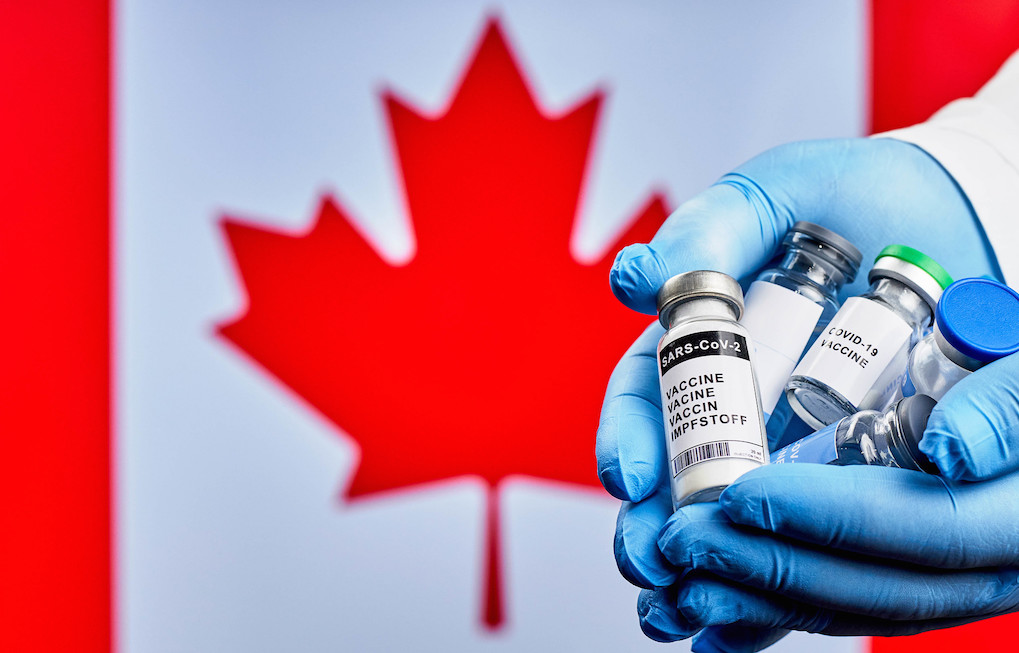What’s more “embarrassing,” the fact that Canada is buying vaccines through COVAX, a program run by the WHO (a UN agency) to supply vaccines to poor nations, or the sanctimony of Canadians who are “shocked” to hear it?
Stephen Lewis says “It’s just wrong morally.” Former NDP leader Thomas Mulcair called it humiliating. Current leader Jagmeet Singh found it troubling. A rep for Doctors without Borders said it was indefensible. A pharmacy prof said it was “shocking and an embarrassment.”
Shocking it isn’t. It was always part of COVAX, a kind of matching grants program, though the formula is more complex. You can buy for yourself while also donating for poor countries. Lewis said it was always understood that it wasn’t a source for rich countries, but that’s one of its signature features. CBC’s Rosemary Barton asked Singh three times if he’d cancel the transaction and thrice, like a left Canadian version of Judas before the cock crowed, he avoided answering. She gave up, after registering triple exasperation.
There was wide deployment of the “double-dipping” charge, a redolent term hinting at politicians like former Liberal minister Dave Dingwall or Mike Duffy grabbing all the public benefits they can. It’s not really the same thing.
The feeblest argument was that Canada is the only G7 country that uses COVAX this way. All that proves is that Canada should never have been a G7 country. We’re not a big, industrialized economy comparable to the other six. We’re only there to provide unwavering support for the U.S., exactly the way we’re in the Organization of American States, despite our early reluctance to join. New Zealand and Singapore have both requested “early allocations” from COVAX, just like us.
We’ve always avoided being a grown-up economy with its own production capacity. We’ve dabbled seriously in it (Sir John A’s National Policy or postwar industrial expansion) but we always retreat to our resource extraction comfort zone (Canada-U.S. free trade and then NAFTA). So when the storm hits, like COVID, we can’t produce what we need and flail around.
Our COVID flailing amounted to throwing money out there to acquire the biggest “portfolio” of vaccine purchases in the world. The totally predictable problem with that is no government of a nation-state that relies on being elected, will hesitate to restrict vaccines made within its borders to its own voting population till they’re all vaccinated. They’ll find some way to cancel or delay those solemn contracts, till they’ve looked after their own.
We’ve always been naïve on the realities of global trade, in spite of many counter-examples like softwood lumber or U.S. blocks on our aluminum — because it was a “threat” to their national security. The solution is building our own production ability, which we very recently had in pharmaceuticals, but cheerfully gave up.
COVAX is a reasonable idea and the fact that it appeals to national self-interest versus altruism is a plus in the real world. Canada has made a decent contribution, behind the U.K. but ahead of the Bill and Melinda Gates Foundation. Its flaw is that it’s a purchasing consortium. COVAX doesn’t produce, and will likely fill only about three per cent of the poor world’s needs. The heavy lifting looks like it will fall to China and Russia, which are already sending their vaccines abroad.
If you feel a need to be shocked and humiliated, I recommend focusing instead on our policies in Latin America — Honduras, Haiti, Venezuela — backing authoritarian leaders and undermining human rights. There is no upside there.
Countries can in fact occasionally act against their own self-interest (like deferring to the health needs of the Global South) but only with the consent of the governed. When I was in Mozambique in the late ’70s, they’d cut off trade with apartheid South Africa, though it economically harmed dockworkers and others. But those workers had debated and voted to do it — as workers in Tanzania and Zimbabwe earlier supported Mozambique’s fight for freedom.
A choice between vaccines for our own families and those in the Global South would be a wrenching one. Most of us would be more likely to try and have it both ways — which I think is exactly what COVAX is trying to do.
Rick Salutin writes about current affairs and politics. This column was first published in the Toronto Star.
Image credit: Marco Verch Professional Photographer/Flickr




